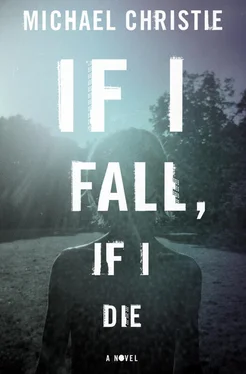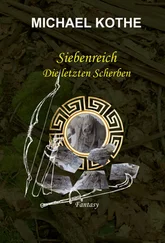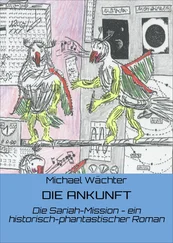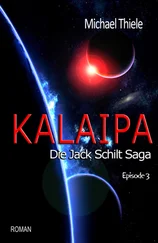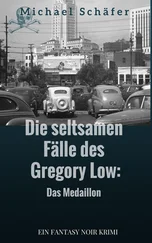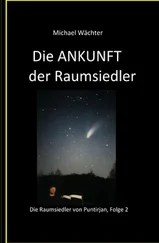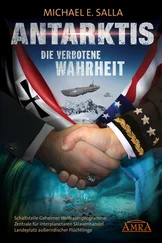He emerged, swatting ash flakes from his pants, into a grand room high above the harbor with huge windows and plank floors without an ounce of pigeon droppings. There was a scattering of old furniture and small rugs, a few plants. Judging by the large desk near the window and the shelving on the walls, it was probably once an office of some kind. No sign of garden hoses, or Marcus.
By the time Jonah wrestled himself through, the man moaned and collapsed to the floor, clunking his head soundly on a table leg. Will hurried to his side. He pulled his sweatshirt from his bag, unrolled the knife, stuffed the shirt under the man’s head, then stashed the knife back in the bag. Will got a good view of him now, mid-thirties, except he looked older and younger at the same time, his long hair graying, the skin around his hollow eyes thin as lavender petals.
“Those two men did this to you?” Will asked. “Was it because you’re protecting Marcus?”
“You’re right, Aurelius. They’re unconglomerated,” he said with the hollow gaze of a man recently subject to an explosion. “But you’ll be tacking in the rip soon,” he continued as his teeth hissed and chattered. Then he coiled with a violent cough, his legs smearing blood like a gory snow angel.
“Why’s he shivering so much?” said Will.
“He’s in shock,” said Jonah. “Textbook. We need to keep him warm.”
Will surveyed the room and spotted an old woodstove obscured by a stack of old books. “I’ll start a fire,” he said, scanning for matches and finding none, vowing to stuff his G.I. Joe — torching barbecue lighter in his backpack the next time he went Outside.
“This castle!” the man belted loud, straining up with a gurgle, “is full of gas — the grain, rotting. You’ll sail us to the ether!”
Will regarded Jonah quizzically, and he shrugged.
“Okay!” said Will, nearly yelling in the man’s face, hoping to lodge the words in his brain through sheer volume. “Do you have any blankets!”
“Abysmal,” the man said, cinching his eyes closed.
Jonah found a heavy-duty sleeping bag on a mattress set atop some pallets. Rather than risk getting too close by attempting to shove the man in, Jonah unzipped the bag and draped it over him. Soon the pace of the man’s shivering slowed. Will cracked the water bottle he’d brought and set it beside him on the floor.
“Will, will, will, will you find me again?” the man called with a strange tenderness. “Is that my voice?” he said. “I’ve been eating birds for so long—” Then he began to retch. Will held the bottle to his lips, allowing him a long, desperate slug.
“Pththththththt …,” he said spraying the liquid broadly, aerosoling it in the sunlight. “Pestilence!” he shrieked.
With this rebuke the man seemed to have burned up a final reserve. His wheezing slowed before slipping into something near sleep, a rest unsettled by winces of pain and his mouth’s own involuntary workings, emitting sounds halfway between word and dream.
Jonah put his fingers over the man’s wrist, then lowered his ear near his mouth. “His vitals are fine,” he said. “But looks like we won’t be finding Marcus tonight.”
They sat cross-legged beside the man, collecting themselves while monitoring the buzzy, tortured lift of his breathing and listening to the bleat of gulls and the rumble of the occasional train that ran without stopping through the yard far below. Through the window they could see dozens of birdfeeders made from old oilcans fixed outside the window to the concrete. The air was thick with the tang of rust, the funk of wharf, iron, and blood. Will knew about iron in blood because sometimes his mother had claimed hers was low and made them steak, slow-cooked for an ungodly duration until it became something closer to jellyfish. Before long the sun dipped behind the hill and the sky ignited orange. The man’s sweat had already soaked his sleeping bag like a dishrag.
“I think we should stay the night,” said Will, cutting the silence.
“You’re kidding,” Jonah said.
“What if we come back tomorrow and he’s gone? We won’t be able to ask him about Marcus. Plus they hit him in the head , too, Jonah. You know concussions better than I do. What if we leave and he doesn’t wake up?”
Jonah regarded him seriously. “One thing I’ve learned is that there isn’t enough help in the world for some people.”
“Come on, Doc, you don’t really believe that,” Will said. “Or are you planning on choosing all your patients?”
“It’s called triage, Will, look it up,” Jonah said. “I want to be a family doctor,” he added, “not a mortician.”
For a quiet minute the boys watched little birds flit in and out of the birdhouses, brimming with seed and grain. Will had once believed Jonah was fearless, but lately he’d detected in his friend a coastal shelf of fear sunk to a depth to which no person could hope to dive.
“Please, Jonah?” Will said, trying not to sound pathetic like his mother at the door. “You didn’t have to tell me to walk away that day by the creek or jump on that wolf. But you risked yourself then. And Marcus did the same for you the night he went missing. This might be our only chance to save him. But I need you. I have this feeling that we’ll be safe as long as we’re together, that nothing can really hurt us.”
“You’re sounding more like Marcus every day,” Jonah said shaking his head, half-smiling. Then he grimaced with disbelief at what he was about to agree to. “Won’t your mom be worried?” he said.
Will laughed. “Naw, she’ll be fine,” he said.
“Well I’m not crawling into one of those,” Jonah said, gesturing to the remaining sleeping bags on the mattress. He took a drag from an imaginary cigarette, then blew a puff of frost toward the ceiling. “We’ll need heat,” he said. “There’s plenty of burnable wood down there.”
“But do you think what he said about the gas from the grain is real?” said Will. They both regarded the man again, his rough mouth hanging wide and loose, his skin papery with scars and caked grain dust.
“I don’t think so,” said Jonah. “An elevator blew up down here like forever ago. But we’d know about it if it still happened.” The boys marched back downstairs and returned with an armload of scrap wood, Jonah passing it to Will through the boiler.
“Maybe they haven’t blown up because nobody is in them, except people like him …,” said Will, thinking of his dead uncle Charlie as Jonah was loading the stove, cursing himself for not paying more attention to Mr. Miller’s history speeches.
Jonah stood with his lighter held up in the air, thumb poised. “Ready?” he said.
In an instant Will was looking at the match bomb Marcus had set off in his front yard, the life-changing bang that had started it all, and he realized now that if he’d learned anything, it was that the Outside was one gigantic Destructivity Experiment. “Do it.”
Then came a raspy flick that made Will’s scalp prickle and his throat swell like a stepped-on balloon. Jonah waved the flame aloft and made the sound of a roaring crowd. “Thank you, Thunder Bay!” he said, then killed it with a quick puff.
With the stove lit and the windows mostly intact, the room grew warm. For a while the boys talked in the glow of the small fire, mostly about skateboarding — tricks they were amassing the courage to try, legendary falls they’d withstood — in an effort to normalize the situation. Will knew that boys their age would default into a discussion of girls at these moments — a comparison of their respective kisses with Angela, perhaps — but this subject never arose between them. Lately at school, a few girls, weirdly entranced by the boys’ apartness, their withdrawal, their griminess and scars, had been slipping notes into their desks. Though sometimes just a glimpse of a girl’s velvety collarbone under her tank top strap was enough to force Will to tuck himself discreetly into the waistband of his pants, Will and Jonah tore the notes to bits. While Will retained a secret loyalty to Angela, having an actual girlfriend seemed an unjustifiable risk, if only because she could turn out like his mother.
Читать дальше
